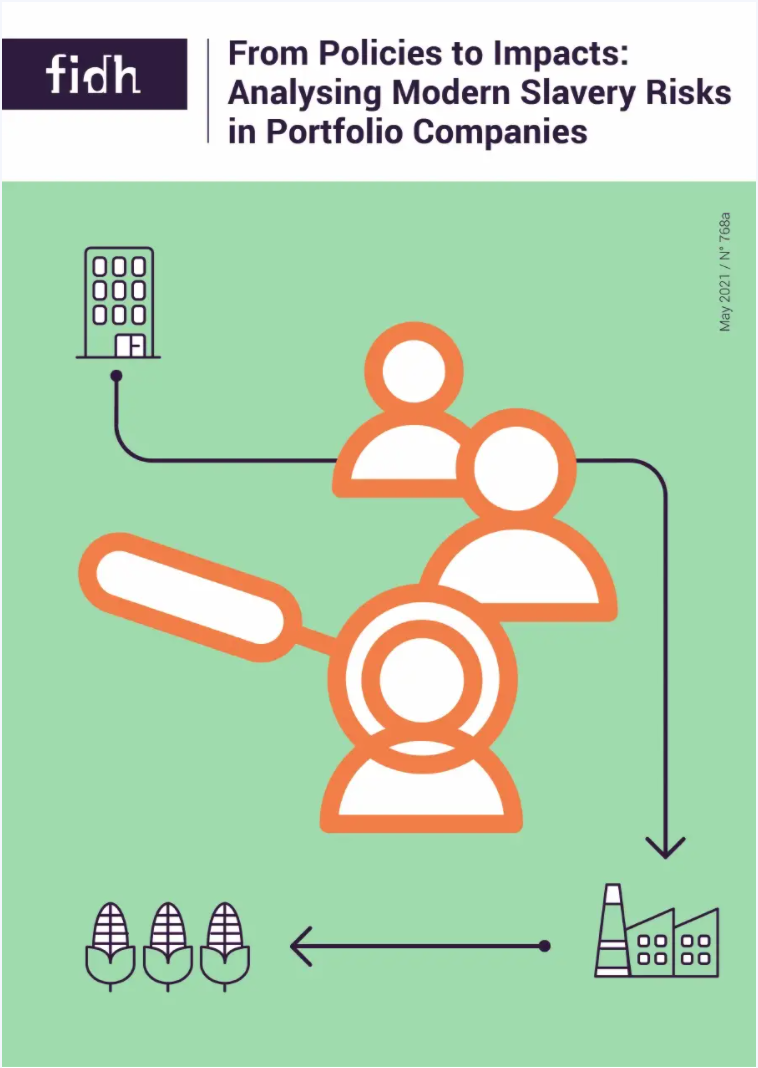As a result of the progressive legalization of international business and human rights “soft law” standards, the “S” of “ESG” is no longer an optional criterion for investors to include in their decision-making process, but it is becoming part of their normative duty to respect human rights. In this report, the International Federation for Human Rights (FIDH) gives investors tools to identify and address human rights risks, including modern slavery risks, in their investment portfolios, from the perspective of an international human rights organization working with its members and communities around the world to protect human rights from corporate abuses. Since 2001, FIDH has been working in partnership with La Banque Postale Asset Management (LBPAM) on its own responsible investment fund (SRI Human Rights Fund). FIDH has developed a human rights methodology in order to assess which companies are suitable to join the investment portfolio. As part of the Moving the Market Initiative, FIDH has revised its existing human rights evaluation methodology to include performance tools that can facilitate the assessment of modern slavery and has used this updated methodology to analyze a list of companies in four sectors: Tourism, Construction, Food and Beverage, and Textile and Footwear. The conclusions of this analysis are presented in this report, including a specific description of the results per sector, with a focus on modern slavery, along with the identification of transversal risk areas which relate to some of the root causes of modern slavery.

